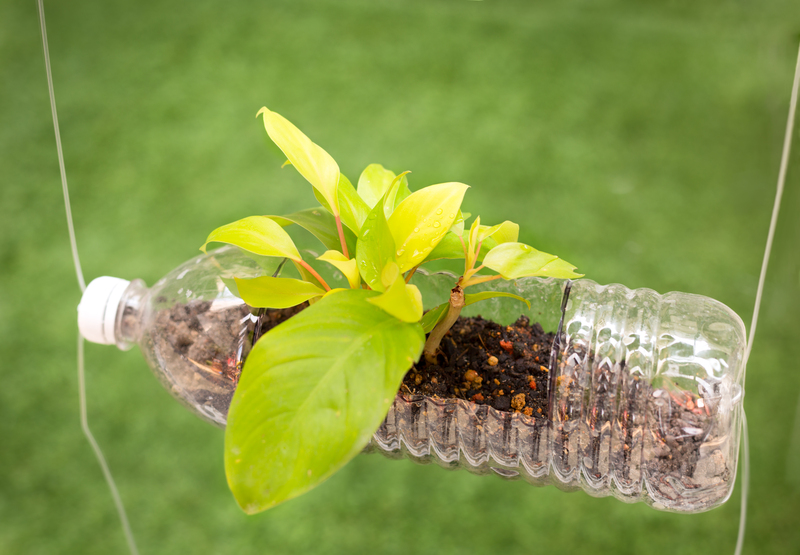Eco-Friendly Plant Pot Disposal Methods: A Comprehensive Guide
Eco-friendly plant pot disposal methods have become increasingly vital as gardening continues to grow in popularity. While nurturing flowers and vegetables can be sustainable, the issue of what to do with leftover pots remains a challenge. Most plant pots are made from plastic, clay, or biodegradable materials, and each requires different handling to reduce environmental impact. In this article, we'll explore responsible ways to dispose of plant pots, including recycling, reusing, upcycling, and more sustainable solutions for conscious gardeners.
Why Proper Plant Pot Disposal Matters
The disposal of plant pots is often overlooked in the gardening cycle. Millions of pots are discarded each year, contributing significantly to landfill waste. These materials, predominantly plastic, can take hundreds of years to break down, potentially leaching toxic chemicals into soil and waterways. Eco-friendly disposal of plant pots not only protects the environment but also supports a circular economy by keeping materials in use for as long as possible.
Understanding Plant Pot Materials
- Plastic pots: Lightweight, durable, and widely used, but notoriously challenging to recycle.
- Terracotta or clay pots: Natural and porous, often break down over time but not easily compostable.
- Biodegradable pots: Made from materials like peat, coconut coir, or recycled paper - designed to decompose naturally.
- Other materials: Ceramic, fiber, and fabric options each come with their pros and cons for sustainable disposal.

Top Eco-Friendly Methods for Disposing of Plant Pots
1. Reusing Plant Pots for Gardening
Before considering disposal, the most environmental option is reuse. If your pots are still intact, get creative and find ways to utilize them in your own garden or share them with others. Reusing plant pots isn't just eco-friendly--it saves money too!
- Re-pot new plants.
- Start seedlings indoors before transplanting outdoors.
- Use as organizers for tools, labels, or garden supplies.
- Offer excess pots to neighbors or local gardening groups.
2. Recycling Plastic Plant Pots
Recycling is a prime eco-friendly option, but not all garden plastic is recyclable via curbside programs. Plastic plant pot recycling methods may vary, so follow these steps:
- Check local recycling programs: Some areas accept rigid plastics, while others do not.
- Clean pots thoroughly, removing all soil and labels.
- Look for the recycling code--types #2 (HDPE) and #5 (PP) are the most commonly recycled plastics.
- Garden centers and nurseries sometimes have dedicated drop-off bins.
Pro Tip: Search online for garden plastic recycling events in your area if your curbside program does not accept them.
3. Composting and Biodegradable Plant Pot Solutions
Eco-conscious manufacturers have introduced pots made from biodegradable materials. Disposing of biodegradable plant pots is simple--just plant them straight into the ground or add them to your compost pile! Here's how:
- Peat or coir pots: Completely compostable, they break down quickly and enrich the soil.
- Paper pulp pots: Shred before composting for more rapid decomposition.
- Fabric pots: Some are biodegradable, but check manufacturer guidelines.
Note: Do not compost pots with plastic linings or water-repellent coatings as these can persist in the earth.
4. Upcycling: Creative Ways to Repurpose Old Plant Pots
Sometimes, the best way to keep pots out of landfills is to give them a new life. Upcycling plant pots can be fun and functional:
- Turn them into garden art or sculptures.
- Use as decorative storage bins around the house or garage.
- Transform large, broken terracotta pots into garden edging or pathways.
- Craft projects: Paint or decorate with children for educational activities.
Choosing to upcycle supports sustainability by reducing waste and encouraging creativity.
5. Donate to Schools, Nurseries, or Community Projects
Many schools, environmental groups, or community gardens welcome donations of reusable plant pots. This not only prevents waste but also supports educational and local greening initiatives. Before dropping off, ensure:
- Pots are clean and free of disease or pest contamination.
- There are no cracks or sharp edges (for the safety of small children).
- You've coordinated with the recipient to confirm they can use them.
Specific Disposal Techniques by Material Type
Each material requires different handling for a sustainable plant pot disposal process. Here's how:
Plastic Pots
- Recycle through municipal programs or garden center collection points.
- Reuse within your home or garden whenever possible.
- Participate in mail-back recycling programs if no local options exist.
Terracotta/Clay Pots
- Reuse creatively: Break into pieces for drainage layers at the bottom of larger pots.
- Crush and mix into soil: Very small pieces add minerals and aid drainage.
- Community swaps: Offer to local gardeners who love the classic look.
Biodegradable Pots
- Plant directly: Most are designed to be planted along with their contents.
- Compost: Tear up and add to your compost bin or pile.
- Community gardens: Don't hesitate to share unused biodegradable pots.
Ceramic and Decorative Pots
- Reuse as indoor decor: Decorative pots can be used for storage or as vases.
- Repair: Consider using ceramic glue to fix minor chips or cracks.
- Recycle: Some specialty recycling centers accept ceramics, or break into pieces for reuse in mosaic projects.
Best Practices for Reducing Future Plant Pot Waste
Reducing waste starts with smart purchasing decisions and ongoing sustainable habits:
- Choose biodegradable or recycled pots whenever possible.
- Bring your own pots when purchasing new plants to reduce single-use waste.
- Support nurseries that offer pot return programs or use sustainable packaging.
- Opt for bulk buying or swapping with friends to avoid unnecessary pots.
Supporting a Circular Gardening Economy
The gardening industry is starting to embrace sustainability in plant pot production and disposal. By prioritizing plant pots made from recycled or biodegradable materials, demanding take-back programs, and sharing resources within the community, home gardeners can play a key role in driving positive change.

Frequently Asked Questions
Can black plastic plant pots be recycled?
Many municipal programs do not accept black plastic plant pots because the recycling machinery has difficulty detecting the color. Check with your local authority or return them to a participating garden center for proper eco-friendly plastic plant pot disposal.
What about pots with labels, stickers, or printed information?
Remove all labels and stickers before recycling. Plastic stickers and adhesives can contaminate the recycling stream and should not be included with clean pots.
Are biodegradable plant pots always compostable?
Most biodegradable pots can be composted, but some may contain small amounts of plastic or glue. Always check the manufacturer's composting recommendations to ensure truly zero-waste plant pot disposal.
Can I dispose of broken plant pots in my household waste bin?
While it is possible, it's not ideal. Explore reuse, upcycling, or recycling solutions first. For ceramic and terracotta, some community recycling depots accept them as construction waste for use as aggregate.
Conclusion: Making Plant Pot Disposal Eco-Friendly and Accessible
Responsible plant pot disposal is essential for reducing gardening's environmental footprint. By embracing reuse, recycling, composting, and upcycling, you help shape a greener future and foster community sustainability. Eco-conscious plant pot disposal protects natural resources, minimizes landfill waste, and encourages innovation in green gardening practices.
Take action today: Choose sustainable plant pots, participate in local recycling programs, and share resources within your community for a truly low-impact gardening experience. Together, we can make plant pot disposal planet-friendly!